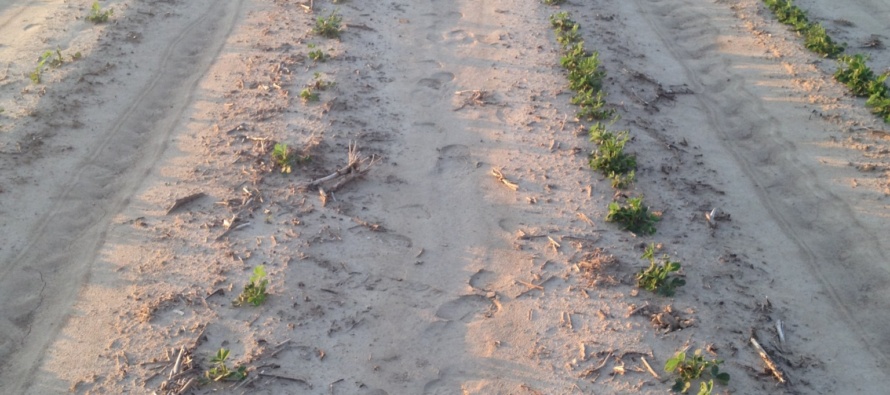Managing Cotton After Uneven Emergence

Related Articles
- Fertilizing Cotton with Poultry Litter 5
- Flag The Technology 0
- Mississippi Cotton Insect Situation of 2010: A Look Back 3
Latest Tweets
Numerous instances have been observed this year where multiple growth stages of cotton occur in the same field and in some instances in the same row. This situation can present management challenges throughout the season. The following points are offered in regard to managing these situations:
- Determine if selected areas of the field have worse stand emergence issues than others. For example, areas of fields were water pooled more so than other areas usually have more variable emergence and uneven stands than other areas. If these areas can be relatively easily blocked off when spraying, manage them as needed for insects, weeds, excessive vegetative growth, etc.
- More times than not, emergence patterns were dictated by soil moisture available (or not available) at planting. In these situations, where soil moisture was present cotton emerged and appears normal. When cotton seed was planted into dry soil, emergence was dictated by subsequent rainfall. When this is the case, determine how much of the field has uneven emergence. Manage the field based on the the age of cotton that dominates the field. For example, if you have some cotton that emerged relatively quickly after planting but this only constitutes 20% of the field and the remaining cotton emerged later and constitutes 80% of the field – manage the crop that makes up 80% of the field.
- In the most extreme situations, emergence was erratic with no pattern whatsoever. When this is the case and it is a total mixed bag of crop ages, management becomes more difficult. Manage the crop for the oldest stand of cotton in this situation with respect to insects and weeds. However, with plant growth regulators do not make applications to oldest cotton when youngest cotton has less than 8 nodes (if possible). The oldest cotton will get larger and want to put on vegetative growth and will likely need a plant growth regulator application. Keep in mind the goal is not to hurt potential growth of younger cotton when making applications to older cotton. This is a difficult situation and compromises will have to be made.
- The height of the variable emerging crop will likely level out to some degree; however, you cannot change the chronological age of that cotton plant. In other words, height may be equal but if one plant emerged three weeks after another, the plant will always be three weeks behind. Do not be fooled by a crop that has leveled out in terms of height and think that maturity is the same across the board when variable emergence occurred.
Write a comment
No Comments
View comments




Let me tell You a sad story ! There are no comments yet, but You can be first one to comment this article.
Write a comment